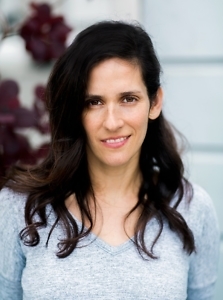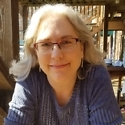Hubris Against God and Man
Rebecca Hanover’s debut YA novel looks at the questions surrounding human cloning
“The boy is Oliver — only he is not. He is, and he isn’t. I find myself trying to make sense of that. I can’t,” says Emma Chance, the narrator of Memphis native Rebecca Hanover’s debut young adult novel, The Similars. Emma is a student at the elite Darkwood Academy, a boarding school in Vermont for especially gifted high school students. Set in the near future where self-driving vehicles and digital assistants are the norm, The Similars imagines a world in which human cloning is achievable yet controversial.

Emma is still reeling from the shocking suicide of her best friend, Oliver, over the summer. When she arrives back at Darkwood for her junior year, she comes face to face with six new students — all clones of current students, except for Levi. He is Oliver’s clone. The cloned students, called “similars,” are the result of an illicit procedure performed 16 years earlier using the stored umbilical cord blood of children from prominent families. Once born, the clones became the wards of a wealthy guardian who raised them in complete seclusion on a private island. But now, inexplicably, they are enrolled at Darkwood, where their “originals” are obliged to interact with them.
At first, Emma is hurt and angry. Levi’s appearance is an insult to the memory of her friend, since he possesses none of Oliver’s personality: “None of the memories. None of the stuff of our lives, the stuff that made us us. This boy has none of it; he knows none of it. Because Oliver is dead, and this, most definitely, is not him. This person is a shell of my best friend.” But when Emma and Levi are elected to “The Ten,” Darkwood’s exclusive top-of-the-class society, they are thrown into close contact during frightening hazing events and she is unable to avoid his company. “Levi has begun to invade my precious memories of Ollie,” she laments. “The ones I rely on for comfort. Those memories are proof that he existed, and that what we had was extraordinary. Now, I see Levi in places where Oliver should be, and I hate him for it.” But gradually Emma begins to accept that Levi’s appearance is both not his fault and not her biggest problem.
 When her roommate Pru is attacked on campus and left for dead, Emma realizes forces are at play that she does not fully understand. She mistrusts the school administration, whose wholehearted welcome of the similars seems suspicious. She’s wary of the other members of The Ten, especially the originals, whose “toxic fumes of elitism” pervade life at Darkwood. But she also suspects the similars themselves, who seem to have extraordinary abilities and lots of secrets between them. Emma plans to get to the bottom of it all, even if she has to accept help from Levi to do it.
When her roommate Pru is attacked on campus and left for dead, Emma realizes forces are at play that she does not fully understand. She mistrusts the school administration, whose wholehearted welcome of the similars seems suspicious. She’s wary of the other members of The Ten, especially the originals, whose “toxic fumes of elitism” pervade life at Darkwood. But she also suspects the similars themselves, who seem to have extraordinary abilities and lots of secrets between them. Emma plans to get to the bottom of it all, even if she has to accept help from Levi to do it.
Hanover cleverly uses the controversy surrounding human cloning, with its threat of DNA control and forced eugenics, as a metaphor for various forms of discrimination, including sexism, racism, and xenophobia. The proponents of the Darkwood Academy Anti-Cloning Movement believe that the clones are less than human and fear that their very existence renders their originals “disposable” and “replaceable.” They urge fellow students to take action: “Join us in fighting for our rights, as humans, against those who commit hubris against God and man,” one flyer reads.
Yet one of the similars wishes both sides could “separate the act of cloning from the product of that act.” Whatever one thinks about cloning itself, she pleads, “has no bearing on whether or not clones…should be treated differently than anyone else.” Finally, even Emma must admit that Levi and his friends have been forced to walk a difficult and lonely path. “For all intents and purposes, Levi is an orphan,” she realizes. “Worse than that — he is parentless. An orphan is someone who’s lost their mother and father. Levi never had parents to lose.”

Tina Chambers has worked as a technical editor at an engineering firm and as an editorial assistant at Peachtree Publishers, where she worked on books by Erskine Caldwell, Will Campbell, and Ferrol Sams, to name a few. She lives in Chattanooga.


